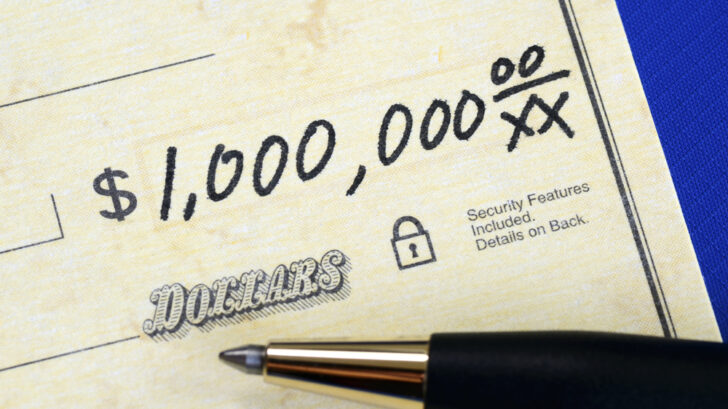According to We Won the Lotto, a documentary regarding the harsh realities of each salary slave’s dream, one should be careful about the goals they have.
The impact is similar to the popping of a champagne cork, leaping from a red Lamborghini and hitting you in the eye with great force. For example, imagine that the birthdays of your kids and a quick pick have eventually borne fruit and as you think of giving up your work and buying a small island, you discover you are in a shiny white room in the headquarters of the National Lottery, welcomed into riches by a Craig Doyle video. The dream appears to diminish.
‘Yes,’ grins Craig who is imaginary, from modest heaven, ‘it appears that you are resting luxuriously and you are sipping something bubbly.’ If I became a lotto winner, I would wish for the genuine Craig Doyle. But, this setback works as a helpful presentation to the discovery of director Marion Cullen about the lottery and its dissatisfactions, even though the programe attempts to maintain its vibrant dream for the longest time it possibly can.
Despite this, it is noteworthy to check the statistical improbability. Your prospects of winning the lottery are 1 in 10.7. (One in a million means you stand a higher chance of being struck by lightning this year).
From the inception of the Irish Lottery in 1987, 800 individuals have won €1 million or over. Just 5% of the winners in Ireland go public. And from these, for her initial episode, Cullen has only discovered five winners who wish to discuss it. Therefore, it is not a good example of a sample, merely a compilation of the sweetly pure and the remarkably peculiar.
For example, Jimmy Carroll, a timid ambulance driver of 53 years from Kildare who becomes a winner of €53,000 appears shocked by the event and is as scared of the hullaballoo and camera flickers in the same way he is of Craig Doyle.
His happiness is the foundation of the complex background of earlier winners.
Billy Comer is our first encounter. He was once a customs officer, and in 1994 he won a corresponding amount of €1.97 million. Weirdly, this made him draw nearer to the significant riches of his brothers, a couple of flourishing global property developers. In the end, he was worth over one billion euro.
According to Billy, ‘I remember calling Brian in London.’
Brian answered, ‘Oh Janey, join the club.’
The recession had an adverse effect, and so did the depression. Billy made some bad investments such as purchasing bars in Galway and making investments abroad that failed in the end. He does not disclose whether it happened due to sibling competition, boundless imagination or merely bad luck.
‘If you misspend it, one million pounds is not a lot,’ he states, trying not to break down in a long-shuttered pub, below a wall adorned with reports from the newspaper about his fortune.
According to him, ‘the recession had a tremendous impact, and so did the depression.’
Vincent Keaney might find it funny, with traditional and baffling joy, but his tale is much the same. In 1994, he won £1 million and purchased the Cobh dole office and transformed it into a pub and restaurant with a Titanic theme. He mortgaged his house when it incurred debt.
He lost the pub in 2005. ‘It ran into an iceberg, and I believe I did as well,’ he says laughing, while the music selected by the documentary, nimble pizzicato strings is much the same as the filmy reality TV and is just as oddly carefree.
Maybe, the same as Keaney, the show is reluctant to reveal the reality. In this, it acquires help from Ann Canavan, the inventor who won £1 million in the UK Lotto. Her simple way of life in Donegal and very unconventional innovations, a wrist-strap for holding tissue known as Snotblot, among others shows that she still exists in one.
The show might finalize with her; however, it hits the jackpot using the shocking absurdities of Keaney’s tale. ‘I can relate to loss,’ he states, reminiscing briefly about the demise of his daughter and his brokers. ‘I am not ready to think about it.’
Cullen presents one astounding statistic; that 70% of Lotto winners in the US announce bankruptcy 20 years after winning. You might suspect that this is a factor that Craig Doyle would never disclose to us: it can be very costly to win the lottery.
Keaney returns to view the home of his dreams and becomes lost after his Titanic sinks. He talks like a seesaw of riches: ‘If I had never become a lottery winner, am nearly 1,000% certain I would be residing here,’ he remarks. However, you cannot reject good fortune.’ Good fortune is costly.’
Consider this…it might be you.

